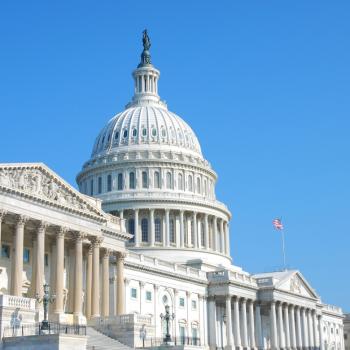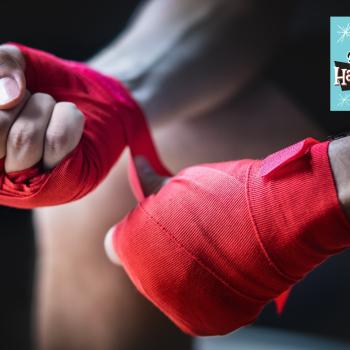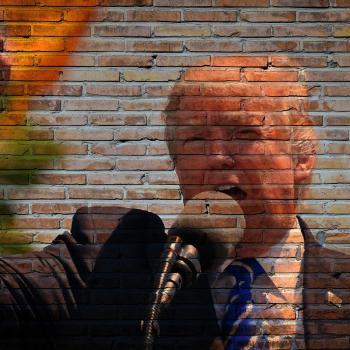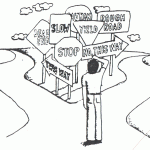I’m not prejudiced,” my friend said. “I mean, I even have Black friends!” He needed help navigating cultural icebergs without getting sunk.
He continued, “I even like rap music, Mexican food, and Asian art! My church did a mission trip to work with the Indians (American or South Asian, I can’t remember which). I was raised not to see color, to treat everybody as equal, and I raised my kids that way, too. So, I can’t be prejudiced. Pass that label on to somebody else—maybe that guy over there with his head shaved, flying the Swastika. Yeah, that’s what prejudice looks like—right?”
Are You Prejudiced?
Most good people would hope that they aren’t prejudiced. But if we take a closer look, we just might find that deep inside, all of us have picked up a touch of prejudice somewhere along the way. I know some of you will get defensive. But I’m talking about prejudice on all cultural levels. So, please take a look at this cute penguin navigating icebergs, and then hear me out.

The Cultural Iceberg
This iceberg depicts two levels of a person’s culture. In 1976, Edward T. Hall suggested that only ten percent of a person’s cultural expressions are above the surface, while ninety percent lay hidden. Floating on top is Surface Culture: those aspects of a person’s culture that can be easily discerned by others who are not in the same culture. These are things such as food, flags, festivals, fashion, holidays, music, performances, dances, games, arts and crafts, literature, and languages. When a person sees another culture, these are the things that they see on the surface. They may enjoy aspects of another culture that float above the surface, and therefore deem themselves to be “not prejudiced.”
Surface Culture Vs. Deep Culture
But look beneath the surface, and you see the more massive level of Deep Culture. You may enjoy another culture’s restaurants, for example, but have a hard time grasping elements of their Deep Culture. You may judge them, consciously or subconsciously, based on these things.
Communication Styles and Rules
Deep Culture involves communication styles and rules. This includes facial expressions, gestures, eye contact, personal space, touching, body language, tone of voice, handling and display of emotion, and conversation patterns. In 1990, when I was eighteen, I was walking with a dear male friend in a shopping mall. Having recently come from Palestine, he reached over and took my hand as we strolled together. I understood the social norm in Arab culture, but my teenage prejudice and homophobia kicked in, and I immediately dropped his hand. Imagine how foolish I sounded as I tried to explain to him how my cultural and sexual fragility required that I reject his gesture of friendship!
Notions of Beauty
Deep Culture involves notions of courtesy and manners, friendship, leadership, cleanliness, modesty, and beauty. An example of this would be White culture’s frequently equating blondness with beauty. I mean, in jokes and music, all they have to say is, “This blonde walked into the room,” and everybody just knows she’s gorgeous. Poor brunette White women! And (given this reference) too bad for beautiful women of color, who apparently don’t measure up! This isn’t something people think about, or even notice on a surface level. It’s hidden, beneath the surface of our conscious minds. And it can be a source of prejudice.
Concepts of Time & Fairness
Deep Culture involves concepts of self; time; past and future, fairness and justice; roles related to age, sex, class, family, etc. For example, you may not consider yourself racist, but you may judge somebody from a different country as rude based on their flexible schedule keeping. You may not think you’re prejudiced, but you may think that someone of a different culture is overreacting to unjust situations, becoming more incensed where you might be more reserved. Perhaps you don’t consider yourself racially biased, but you think that people of another culture are “immoral” if they don’t have the same sexual or romantic values as your culture.
Attitudes Toward Family
Deep Culture involves attitudes towards elders, adolescents, dependents, rule exceptions, work, authority, cooperation vs, competition, relationships with animals, age, sin, and death. I grew up in a home with two generations: parents and children. Across the road from us lived a family from a different culture, with four generations in the home. I thought that was weird because I didn’t understand either the economic necessity or the generational togetherness that they enjoyed. Because I viewed things from my own cultural standard, I labeled their experience as “less than” my own. I wouldn’t have considered myself prejudiced—I played with those same kids. But I didn’t “get” their family structure, and subconsciously judged them for it.
Approaches to Religion & Family
Deep Culture involves approaches to religion, courtship, marriage, raising children, decision-making, and problem-solving. When I was growing up, a family in my church hosted a foreign exchange student from Thailand. They told him that as long as he lived under their roof, he was going to attend church. They believed that theirs was a missionary effort to save his soul, but they couldn’t see how their demand potentially violated his own beliefs and culture. I was so proud of my dad for taking him to the Buddhist temple, which was hours away! That showed real cultural sensitivity.
Character Based on Deep Culture
In Western society, on the surface, there’s an overarching message that we’re not supposed to be prejudiced—that we should judge someone “not by the color of their skin but by the content of their character.” This sounds good—and it was a wonderful message by Rev. King, and pertinent for its day. But we need to be very aware that it’s not just the color of someone’s skin that we judge. We can be raised “not to see color,” but have cultural biases that judge the content of people’s character based on Deep Culture that lies beneath the surface.
Icebergs Ahead
When you realize that the differences between you and the other person aren’t flaws in their character, but distinctives of their culture, you can be more embracing and less prejudiced. The fact is everybody has a certain amount of cultural bias. The trick isn’t eliminating it completely, but recognizing it for what it is, and then being willing to suspend that judgment for the sake of relationship. Everybody is prejudiced. We all pre-judge, based on differences. But if we embrace differences as interesting and valuable, rather than threatening, then maybe we can pre-judge other folks as friends rather than enemies. Yes, there are icebergs ahead—but don’t be afraid. We can navigate this.
For related reading, check out my other articles:
- Racism In The Pews: A Pastor’s Confession Of Compromise
- Call Trans Folks By Their New Names And Pronouns Today!
- Emergency Brakes At Highway Speeds (& Other Cries For Help)


















